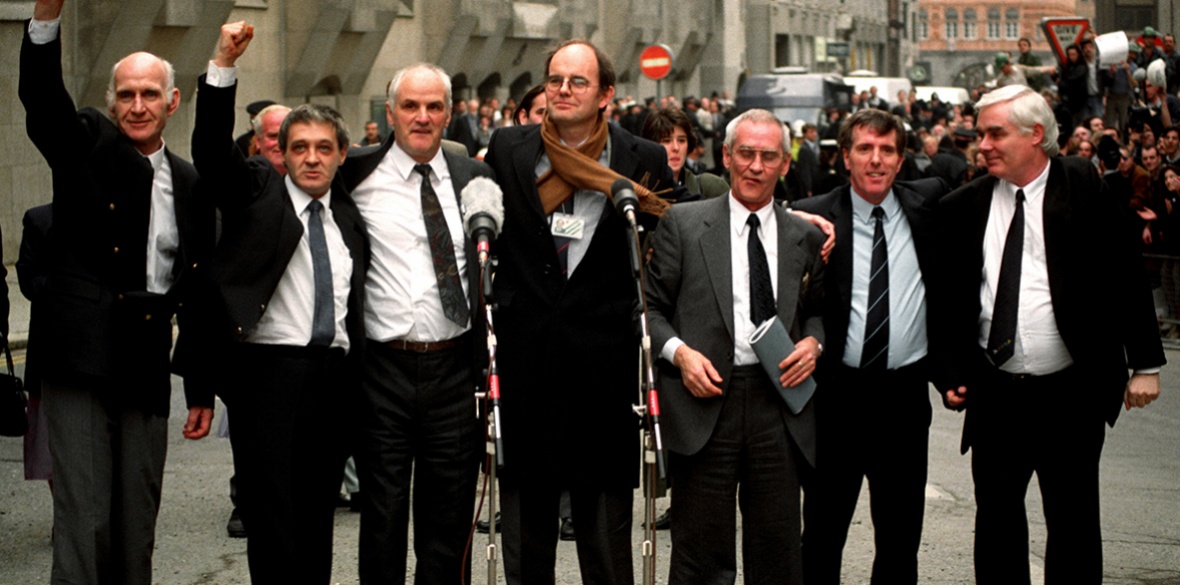This is the last article you can read this month
You can read more article this month
You can read more articles this month
Sorry your limit is up for this month
Reset on:
Please help support the Morning Star by subscribing here
THE Irish government refused to assist the wrongly convicted Birmingham Six when they appealed against their convictions in 1990 for fear of “embarrassment,” newly released state files revealed today.
Paddy Hill, Gerry Hunter, John Walker, Hugh Callaghan, Richard McIlkenny and Billy Power served 17 years in prison after being convicted — wrongly — of murdering 21 people in the IRA pub bombings in Birmingham in 1974.
Thanks to the diligence of their solicitor Gareth Peirce, new evidence was discovered proving their innocence. An appeal against conviction was launched and Ms Peirce asked Dublin to fund their bail, to which they were entitled — the Irish government refused.
Ms Peirce made the request in late 1990, just months before the men walked free from prison after their convictions were quashed by the Court of Appeal in London.
Papers revealing the Irish refusal to help the men have been released under the British government’s 30-year rule, by which information deemed by the state to be “sensitive” is kept secret from the public.
The newly released documents include correspondence between Ms Peirce, solicitors in Dublin and the response from officials of the Irish government.
The Irish taoiseach (prime minister) at the time was Charles Haughey, the leader of Fianna Fail.
The papers reveal that the “embarrassment” which the Irish government feared included the possibility of a refusal of the British government to accept Dublin’s bail guarantee and the possible failure of the men’s appeal against conviction, despite the new evidence.
It is clear from the documents that the Irish concern throughout the appeal was for its own potential embarrassment rather than the welfare of the wrongly convicted citizens.
Advising the Irish government, Department of Foreign Affairs assistant secretary in Dublin Dermot Gallagher wrote: “It could be embarrassing for the government if the court refused to accept it as bailsperson, on the basis of some technicality or other; the court, having accepted the government as bailsperson, refused to grant bail to the men; and the court, having granted bail with the government acting as surety, decided to uphold some or all of the convictions.”
Ms Peirce could not be contacted for comment today.











